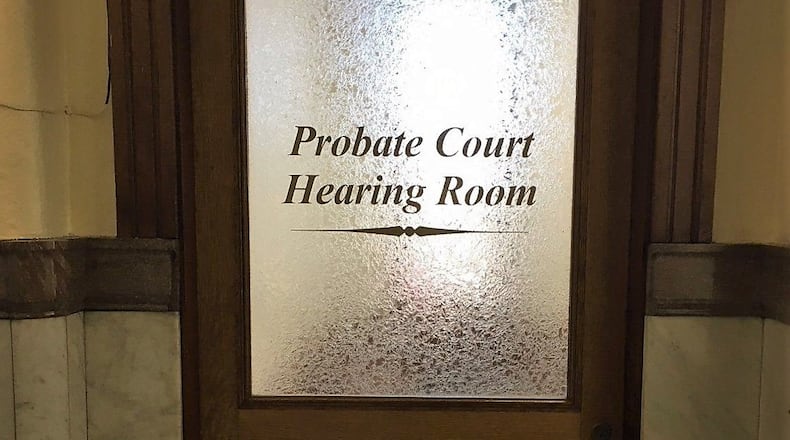The board recommends that Brittany O’Diam be suspended from practicing law in Ohio, with the suspension stayed if she refrains from future misconduct, according to the filing, along with paying court fees. The recommended sanction is similar to one her father, Judge O’Diam received, for the same incident.
The board issued its recommendation Friday, after hearing the case in May.
Brittany O’Diam had been accused of violating five “rules of professional conduct” which include charging illegal or excessive fees, making false statements before a tribunal, improper ex parte communication with a judiciary official, and embarrassing or harassing a third party, according to court filings.
The Board unanimously dismissed all allegations save for the violations regarding harassment, related to a 2019 status conference in which both Brittany and Judge Thomas O’Diam spoke in a “retaliatory, demeaning and humiliating” manner to Grant David Buccalo in O’Diam’s courtroom.
The filing further alleges that Brittany O’Diam harassed Buccalo by writing a letter to Montgomery County Adult Protective Services in February 2020 that “intentionally triggered a criminal investigation and other humiliating consequences” for Buccalo, related to the guardianship of a disabled family member.
Buccalo’s family had hired O’Diam & Estess Law Group in Beavercreek, where Brittany O’Diam practices law, to handle his mother’s estate. Buccalo attended a Greene County Commission meeting and said he thought Judge O’Diam “should recuse himself from cases in which ‘family members’ represent parties.”
Upon hearing of Buccalo’s comments, Judge O’Diam convened a status hearing where he and his daughter cross-examined Buccalo for 75 minutes without an opportunity to respond, according to the original complaint, filed by the Office of Disciplinary Counsel on Dec. 1. Brittany O’Diam at one point asked Buccalo if he “thought it appropriate to impugn my character as an attorney in the public forum,” saying that he had delayed and refused to cooperate.
Later, Brittany O’Diam sent a letter to the Probate Court and Adult Protective Services of Montgomery County, alleging that Buccalo was being “financially abusive” towards a disabled family member whose finances he was managing. A criminal investigation was launched into Buccalo, but immediately closed citing no probable cause, court documents say.
Attorneys are required by Ohio law, “having reasonable cause to believe that an adult is being abused, neglected or exploited,” to report that to Job and Family Services. However, court documents state that Brittany O’Diam did not have reasonable cause for such belief, and misportrayed Buccalo’s understanding of the situation to authorities.
Judge Christopher Cook, the only dissenting member of the three-person panel, said the sanction was too excessive, given the sanction received by her father, Judge O’Diam.
The Supreme Court of Ohio voted 5–2 to suspend Judge O’Diam for six months in April, stayed on the condition that he commit no further misconduct and complete six hours of judicial education focused on judicial demeanor, civility, and professionalism.
Cook argued that Judge O’Diam’s conduct was worse, given his position of power as judge, and recommended a public reprimand.
In his dissent, Cook wrote that he was “troubled” by the regular use of disqualification waivers in Greene County Probate Court. Disqualification waivers are given to parties to inform them of potential conflicts of interest and agreeing to proceed anyway.
“Such a practice does nothing to promote trust and confidence in the integrity of the judiciary, particularly among those members of the public who see a judge regularly presiding over cases in which his daughter is acting as a lawyer,” Cook wrote in his dissent.
Brittany O’Diam did not respond to requests for comment Monday.
Parties to the case have 20 days to file written objections to the Board’s report and recommendation, said Rick Dove, director of the Board of Professional Conduct. If either party files objections, the Supreme Court will schedule the case for oral argument sometime in early 2023 and then issue a decision a few months later.
If neither party files objections, the Court will decide the matter based on the record and the Board’s recommendation. With or without objections, the Court can adopt the sanction recommended by the Board, impose a different sanction, or determine that no misconduct occurred and dismiss the case, Dove said.
About the Author

